In a life story compiled on the Archbishop Christophe by the Social Justice and Ecology Secretariat, the late Congolese Jesuit Archbishop is said to have “made the rejected people's cries, thirst, and hunger for justice his cry.”
He is also said to have seen from a distance, the plan to destabilize and exploit the Eastern part of the DRC during the 1996 invasion by neighbouring countries on the pretext of changing the country’s regime.
“As a sentinel of the region, he invited Christians of Bukavu and the surrounding area to non-violent resistance, awakening them to a vision of a world of struggles where bullets rub shoulders with wheat and weapons confront the cross,” reads the report by the Social Justice and Ecology Secretariat. This led to his assassination.
Archbishop Christophe Munzihirwa’s voice has been described as prophetic because the invasion and destabilization he predicted continues to rock DRC.
The M23 is named after the date in 2009 of the signing of an accord between a Tutsi-led rebel group, and the Congolese government to end a revolt led by the Tutsi people in Eastern DRC.
(Story continues below)
The movement is said to have sprung up in 2012 after former members of the Tutsi-led group rebelled against the Congolese government, accusing it of failing to implement the 2009 agreement by integrating Tutsi fighters into the army, protecting minorities and distributing resources evenly.
M23’s alleged objective is to safeguard the interests of the Congolese Tutsi and other minorities, including protecting them against Hutu rebel groups who escaped to the DRC after taking part in the 1994 genocide that targeted Tutsis.
In the interview with Fr. Stan of PACTPAN, Fr. Toussaint who lives in DRC’s Catholic Archdiocese of Lubumbashi, a territory South of Goma, disputed allegations that the majorly-Tutsi rebel movement seeks to protect their kinspersons who are also found in Rwanda.
“I was born and raised in Eastern Congo. I grew up with Tutsis. I studied with them in elementary school and high school. I can brag to have Tutsi friends and brothers,” he said, and added, “Congo has no culture of war and violence. That is historically proven.”
He said that the DRC’s protracted violence “is being instrumentalized.”
“This is a card that Kagame has been playing in order to push the international community to believe the Tutsis in Congo are under threat,” the Jesuit Priest asserted.
“No one has ever threatened the Tutsis living in Congo,” he said, and added, “Congo has 450 different ethnic groups. This is like really a melting pot of ethnic groups. Why is this problem only concerning a specific group for the last 30 years?”
According to Fr. Toussaint, President Kagame’s interest is to “export DRC’s minerals and traumas”.
The Catholic Priest described the M23 movement as “a rhetoric” to which “everybody is accustomed.”
“I would like, straight forward, to name things by their names,” he said, and explained, “M23 is just a façade. I don’t believe there is any such thing like M23. And to claim that it is a Congolese group of rebels!”
“It is a Rwandan army; the military from Rwanda that have put on a face and recruited some Congolese in order to justify the interventions of Rwanda within the Congo,” Fr. Toussaint said.
Meanwhile, the Jesuit scholar has challenged the people of God in DRC to speak out against the injustices in the Central African nation, saying, “We cannot give up, or fold our hands and sit back and relax as long as we know our brothers and sisters are suffering and dying.”
“We need to continue fighting for what is right and what is just; to fight for what honours and brings glory to God,” Fr. Toussaint said, and urged the Congolese to place value in human dignity and not in mineral wealth.
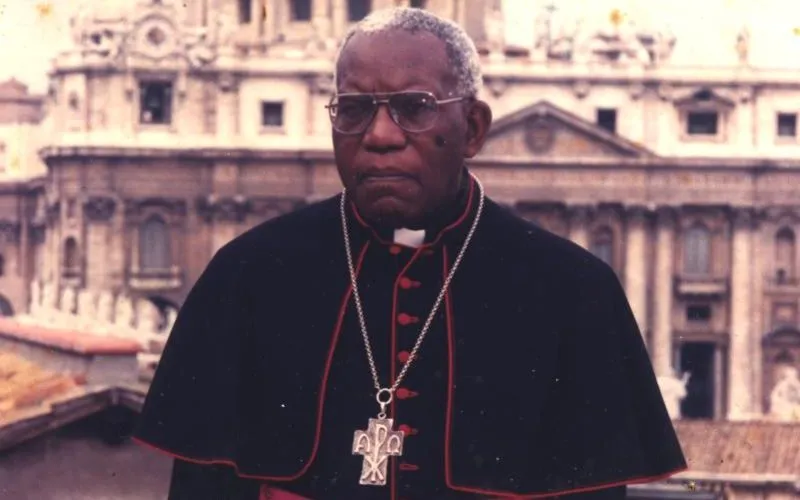 Archbishop Christophe Munzihirwa Mwene Ngabo
Archbishop Christophe Munzihirwa Mwene Ngabo
“Those stones which we call raw materials, or gold, or whatever, have no value that can surpass the value that God really put or entrusted in each and every one of us,” he said in the interview with Fr. Stan of PACTPAN.
Fr. Toussaint’s call was echoed by Fr. Stan, who encouraged the people of God in DRC to remain strong in faith.
“Our faith is stronger than our suffering. But then, our faith has to be translated into concrete, daily, affirmative actions to reverse this cycle of violence,” Fr. Stan said.
“To our brothers and sisters in Congo, peace be with you. For those who are fighting lay down your arms,” the Nigerian U.S.-based Catholic Priest said.
In his message to politicians in DRC, the Catholic Theologian said, “It’s time that you stop swimming in the blood of your brothers and sisters for the sake of power. We are here today and gone tomorrow. Let us leave a legacy of peace on this continent.”
“Let this jubilee year be a year for the church in Africa to be truly the agent of peace,” Fr. Stan said, referring to the Catholic Church’s 2025 Jubilee Year, which Pope Francis officially launched on the Eve of Christmas Day 2024 with the opening of the Holy Door of St. Peter’s Basilica of Rome.
Sabrine Amboka contributed to this story.
ACI Africa was founded in 2019. We provide free, up-to-the-minute news affecting the Catholic Church in Africa, giving particular emphasis to the words of the Holy Father and happenings of the Holy See, to any person with access to the internet. ACI Africa is proud to offer free access to its news items to Catholic dioceses, parishes, and websites, in order to increase awareness of the activities of the universal Church and to foster a sense of Catholic thought and culture in the life of every Catholic.
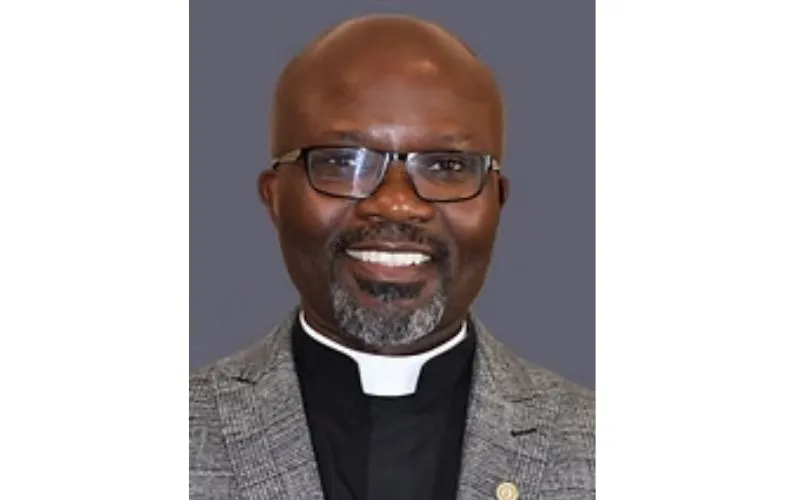 Fr. Toussaint Kafarhire Murhula. Credit: Global Africa
Fr. Toussaint Kafarhire Murhula. Credit: Global Africa


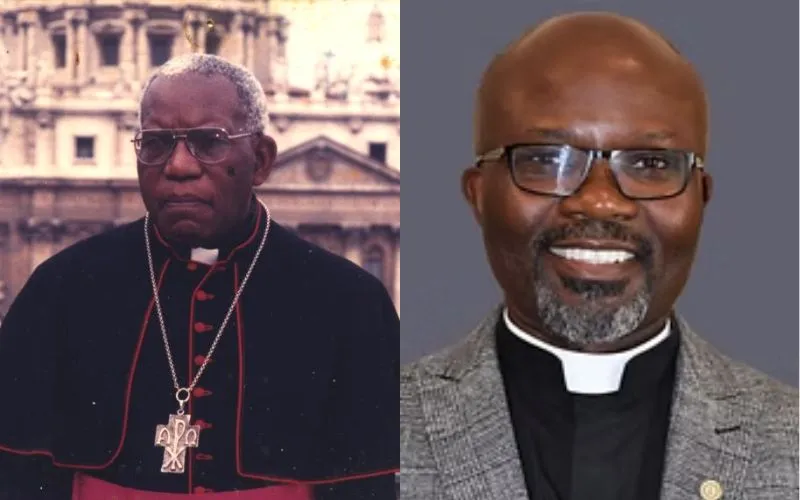
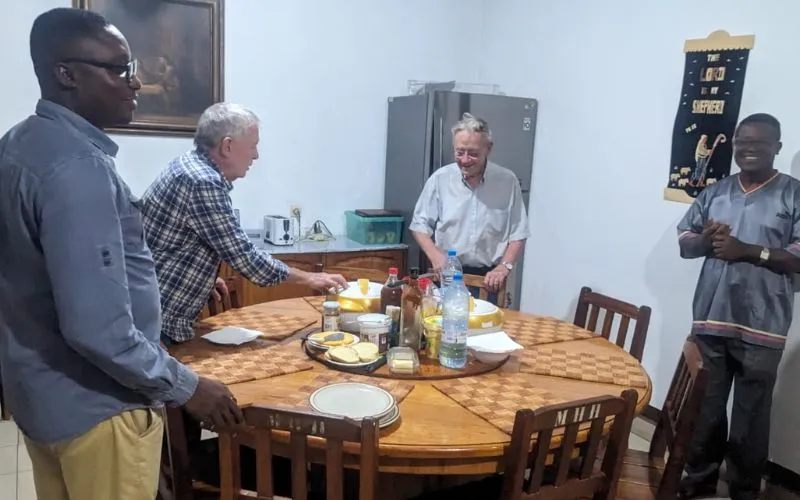
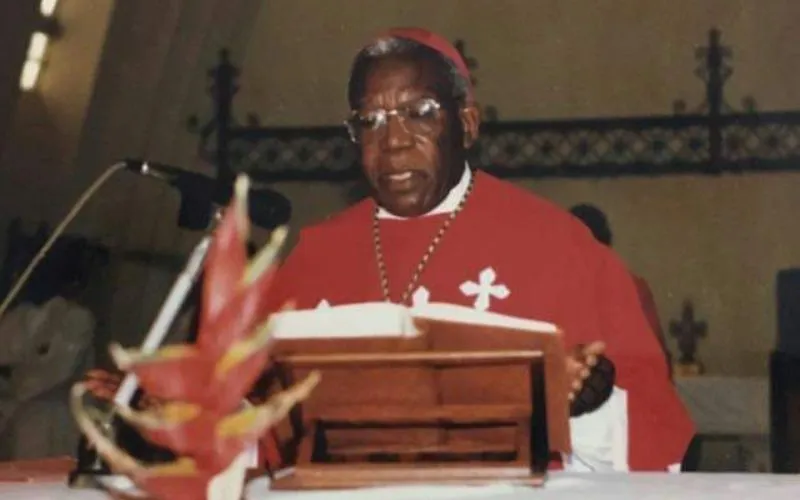 Monsignor Munzihirwa Christophe has been described as "a prophet of compassion and social justice ". Credit: Social Justice and Ecology Secretariat
Monsignor Munzihirwa Christophe has been described as "a prophet of compassion and social justice ". Credit: Social Justice and Ecology Secretariat Archbishop Christophe Munzihirwa Mwene Ngabo
Archbishop Christophe Munzihirwa Mwene Ngabo


